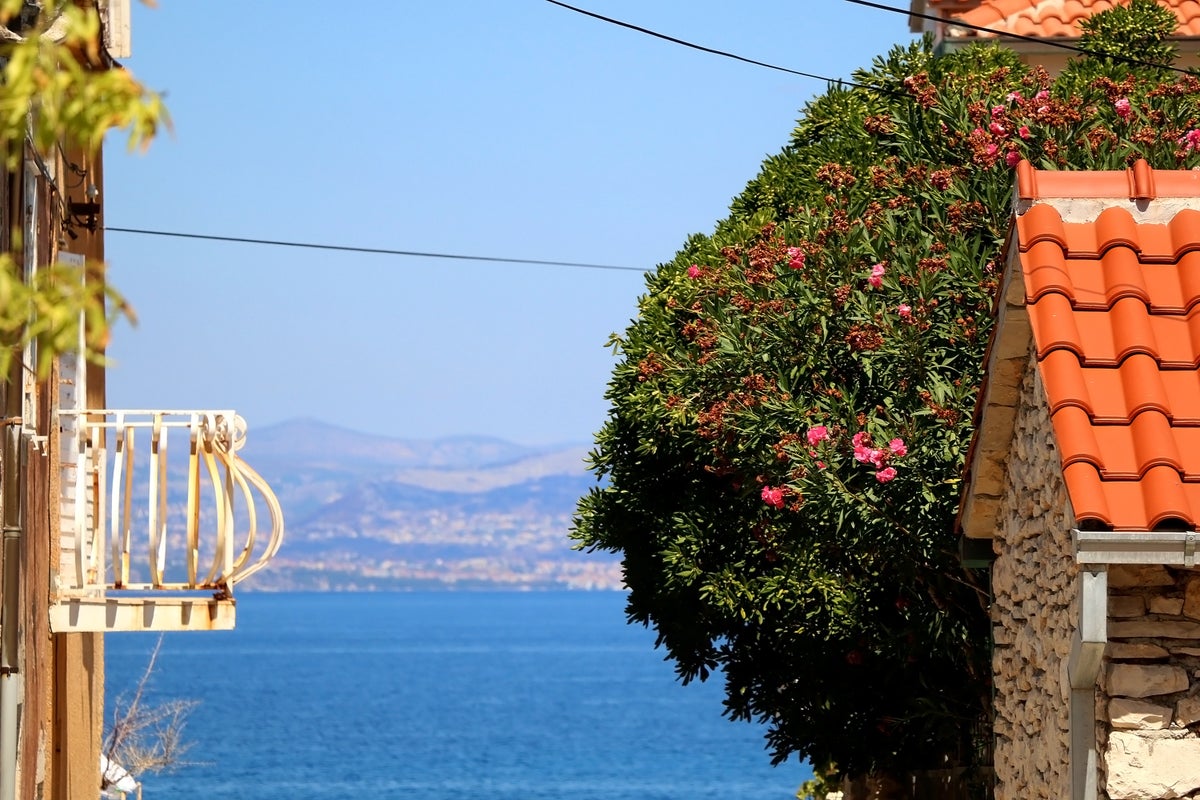
Mention Brač and the first image that usually springs to mind is Zlatni Rat, the V-shaped beach of white pebbles surrounded by vivid turquoise waters. This beautiful spot on Brač’s southern coast has long been the poster child for Croatia’s beaches, but this Central Dalmatian island – the third largest in the country – has many more treasures to discover.
Brač’s craggy coastline is a sailor’s dream – so many pretty pine-fringed coves where you can drop anchor and dive into the Adriatic’s sparkling waters. If you’re travelling by land, as I am, you don’t have far to go to find a stretch of beach. In fact, as the ferry from Split drops me off at Supetar, I can see pebbly beaches straddling both sides of the port, while café terraces around the harbour make an appealing spot for a pre- or post-ferry coffee.
I head east along the winding coast road that curves around Brač’s coves towards Pučišća, which sits snugly at the bottom of a deep, two-pronged bay. Its sheltered harbour is delightful, lined with green-shuttered townhouses made of the same Brač limestone that went into Diocletian’s Palace in Split as well as countless other buildings around the world. Not surprisingly, Pučišća is home to one of only three stone masonry schools in Europe that still teach the art of manual stone-carving.
Another ancient tradition being kept very much alive is on show at the Olive Oil Museum in the interior village of Škrip. There’s been an olive-oil press in this lovely stone building since 1864, and I’m given a fascinating demonstration of how olives used to be manually pressed before the days of hydraulics.
After the demo comes the tasting, so I’m ushered upstairs to one of the chunky wooden dining tables and given a mini feast. This falls into the category of a marenda – a Dalmatian late-morning meal rather like a brunch that workers would have after a tiring morning in the fields. Plates of local cheeses, air-dried ham called pršut, olive tapenade, a spread of sun-dried tomato and chickpeas, plus homemade bread, accompany my tasting of deliciously peppery extra virgin olive oil.
Rather than return to work in the fields, I carry on my coastal exploration, stopping in the agreeably sleepy village of Sutivan. This is another good base for beach lovers, thanks to the paths that ring the coastline leading to one pebbly cove after another. It’s even easier to explore if you rent a bike and pedal from beach to beach.
On my way south I pop into the ferry port of Milna, another favourite of sailors making use of the village’s well-equipped marina. Like Pučišća, it’s set in a deep harbour ringed with beaches, with more coves tucked within the surrounding misshapen coastline.
But I couldn’t come back to Brač without seeing Croatia’s most famous beach again, this time it’s from a different perspective. Hovering over Brač’s southern coast is Vidova Gora, which, at 778m, is the highest peak in the Adriatic islands. From this vantage point I can see the white V shape of Zlatni Rat, with turquoise and blue waters fanning out from the pebbles. I can see Hvar in front and, in the distance, the islands of Vis and Korčula. Zlatni Rat’s shape changes constantly thanks to the winds that make this beach and the neighbouring town of Bol such magnets for windsurfers.
Bol is Brač’s buzziest spot, especially during the weekly Friday seafood festivals that take place throughout July. Sun, stone, sea and the sizzle of fish on the grill – the classic sights, sounds and scents of Central Dalmatia.
Want to follow in the footsteps of our Croatia travel expert? You can discover more about Central Dalmatia and start planning your trip here







